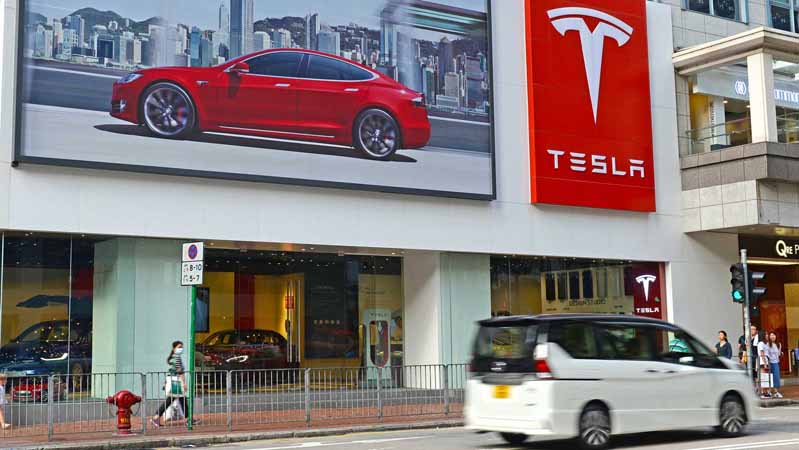Tesla Delivers First Chinese-Made Versions of Its Model Y Crossover, Achieving a First for EV Businesses
By
Elijah Labby
|
Wednesday, 20 January 2021
|
News
Tesla, one of the world’s leading electric vehicle, or EV, businesses, recently delivered the first Shanghai-made versions of its much anticipated Tesla Model Y crossover EV.
The milestone is a big one for Tesla, which arguably needs China to move into other international markets. China is strategically located for easy delivery to EV customers in Europe, who generally live under far more stringent environmental regulations than their American counterparts. These regulations make the region a prime target for the company.

Tesla’s EV Aspirations
But Tesla’s announcement for the business is more than that. It’s a crucial step as Tesla seeks to penetrate the Chinese market even further and offer its electric vehicles to even more people.
China is the world’s largest EV market, and because Tesla wants to increase its EV sales from 500,000 in 2020 to 20 million annually in the next decade, the company is going to need the country’s full support.
So far, the business has got it. China has looked favorably upon Tesla’s EV ambitions and granted the company a number of privileges, including a massive tax break and the ability to be the first foreign automobile business allowed in the country without a partnership with a Chinese company.
Experts believe that this beneficial relationship will be integral to the future prospects of the business in the country, and, if all goes well, Tesla could see sizable growth.
"By 2022, we believe [more than 40%] of Tesla's overall delivery sales could come from China, as this remains the main growth region going forward, followed by Europe, then the US," read a report from the investment firm Wedbush recently.
The International EV Market and Tesla’s Future Business Prospects
But Tesla’s aspirations for its electric vehicles don’t stop in China. The EV manufacturer also has its eyes set on India, but its business journey there could be rockier.
Elon Musk, Tesla’s Chief Executive Officer, confirmed that his business would be opening an office, several showrooms, a research and development center, and a possible factory in India after a Tesla blog reported as much.
Electric vehicles constitute less than 1% of the Indian market, compared to 5% of China’s, and the country doesn’t yet have the infrastructure necessary to support a wide rollout of the company’s EV inventory.
But, to be fair, the very existence of Tesla in a world economy dominated by fossil fuels was unlikely. The company, however, has found a way for its business growth plans. Tesla is the world’s leading electric car manufacturer and will not be slowing down any time soon. So while future international endeavors will undoubtedly have ups and downs, don’t count the ever-resilient company out on achieving its EV goals.
About the Author
Elijah Labby is a graduate of the National Journalism Center. He has previously written for Broadband Breakfast, a technology and internet policy website.

